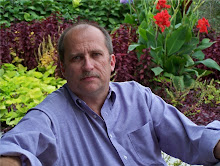You can learn anything on the Internet, including what time journalists get up for the COP16 in Cancun. It’s between 6:30 and 7 a.m.
I know because that’s when the Internet tanks. It suddenly becomes impossible to post my reports, do my research, or often check email. All hope of communicating with the outside world suddenly disappears, and doesn’t seem to come back until sometime after I’ve gone to bed.
Which, by the way, was 12:30 a.m. this morning.
I don’t want to beat a dead horse, but could the U.N. possibly have chosen a worse logistical location for COP16? Don’t get me wrong, it’s a wonderful place to be – the cooling ocean breezes, the waves crashing outside my hotel window – it’s a just a terrible place to report on a conference of 10,000 people, 99-percent of whom have laptops and are all trying to use them at the same time.
December 1, while I was thankfully away from the city in the Yucatan, a colleague tells me Internet access crashed all over the city. It came back on, allegedly, before I got to the hotel, but that’s difficult for me to ascertain since I still could not post to my other blog.
Telephones aren’t much better. Cell phone signal seems to be surprisingly widespread, but it’s extremely expensive, and I can’t get voice mail because I keep getting a message that says I must register my phone. I already did that. Twice.
Top that with the fact that at a world conference dedicated to reducing carbon emission, nearly everyone has to travel 18 kilometers or so to the security check-in.
By bus.
Which runs only once every half-hour from 6:30 a.m. until 10 a.m., once every hour until 6 p.m., then once every half-hour again until 10 p.m.
Once there and checked through, everyone has to get on another bus to ride to a hotel several more kilometers back in the direction we just came.
If negotiations are no better than logistics, there’s no hope of an agreement.
Subscribe to:
Post Comments (Atom)

No comments:
Post a Comment